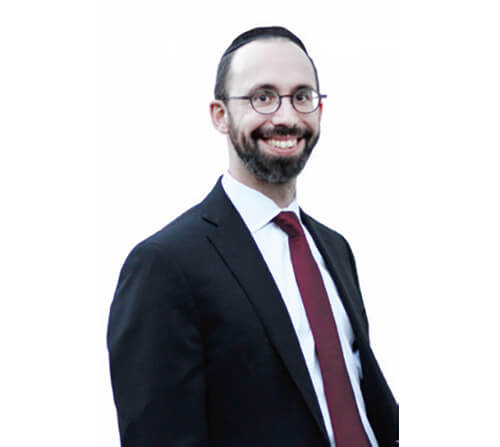
Avi was sitting in a Jerusalem restaurant with a group of Israelis who had recently committed to keeping Torah and mitzvos. The waiter brought watermelon for dessert. One of the men picked up a watermelon slice and very loudly recited “Baruch atah… shehakol niyah bidvoro” and took a big bite. Avi said to the man, “That was such a beautiful blessing. Thank you for allowing us to say ‘Amen’ to the bracha.” Avi then said, “I’m not sure you’re aware that since watermelon grows from the ground, the correct bracha is ha-adama.” The man replied, “I know, but let me tell you a story. I was in the Six-Day War. My platoon was surrounded by Syrian tanks. We were low on ammunition and on soldiers. There was no way out. The commander said we should recite a prayer to save us from this very big danger. I did not know any prayers, but for some reason I knew the bracha of ‘Baruch atah … shehakol niyah bidvaro,’ so I screamed the words as a prayer, placed a mortar in the cannon, shot and blew up a Syrian tank! Upon seeing what just happened, another soldier got up, said the same bracha, shot his cannon and had another direct hit on the enemy tanks. This repeated itself over and over. I said to myself just now, if the blessing of shehakol was good enough for a Syrian tank, it’s good enough for a watermelon!”
It doesn’t exactly work that way. In Parshas Beha’aloscha, the Jews complained about missing the fish, squash and watermelon they freely ate in Egypt. How could they complain they ate fish and other delicacies when they didn’t even receive straw to make the bricks? Rashi quotes the Sifri who explains that their complaint was not about the food. The issue was that they now felt bound by the Torah’s mitzvos, whereas in Egypt they were free of any commitments.
Rav Wolbe cautions that it is hard for us today to comprehend the complaints of the lofty generation who received the Torah. They weren’t looking to be free to do whatever they pleased. Rather, their complaints related to the mun. Delivery of the mun to individuals was very revealing! The midrash tells us the mun fell in different areas, depending on the person’s connection to Hashem. For the extremely righteous, the mun landed on their doorstep; the righteous—a few meters away from their house; the least righteous—outside of the camp. This made for a daily, very public display of where each person was spiritually! Many wanted to be free to eat their mun without their shortcomings being on display for everyone to see.
Indeed, one of the greatest gifts Hashem gave us is the ability to exercise free choice (bechira chafshis) to follow Hashem’s Torah. Although we are always bound and obligated to perform mitzvos, when we exercise our free choice to do so, this connects us to the Torah in a deeper way and makes the reward much greater.
We can also relate to the concept of free choice through Yom Kippur. We hopefully achieve high spiritual standards by the conclusion of Yom Kippur, but it’s hard to maintain these standards all year. As weeks pass, we don’t have the clarity and focus that we achieved on Yom Kippur. If we commit a sin and are not punished on the spot, that’s part of Hashem’s plan to give us free choice. The fork in the road is always there for us—good or bad—it’s our free choice.
My rebbe, Rabbi Elefant of the Mir Yerushalayim, says most of our daily decisions are not an exercise of free choice. Deciding which ice cream or flavored coffee we want is not exercising free choice. Real bechira is deciding to do a mitzvah or holding back from doing an aveira (sin). For example, we may restrain ourselves from saying a derogatory comment. Intellectually, it’s an easy choice. But in the moment, for some, it’s a big challenge! Or like our soldier earlier, do we use our own emotional approach to mitzvos and say “shehakol” on the watermelon, or follow the Shulchan Aruch and say “ha-adamah”?
How do we help ensure that we make the right choice?
Reb Yisrael Salanter suggests we study a topic of Torah a few minutes a day, specifically in an area we want to strengthen or perfect. For example, we may study the laws of kedusha (sanctity) of a shul/beis midrash to help us refrain from talking during davening.
The mun was there for the Jews in the desert, and its delivery method provided immediate spiritual feedback. We have free choice, but usually without immediate feedback. It’s our gift…and our opportunity for spiritual advancement.
By Rabbi Baruch Bodenheim
Rabbi Baruch Bodenheim is the associate rosh yeshiva of Passaic Torah Institute (PTI)/Yeshiva Ner Boruch. PTI has attracted people from all over northern New Jersey, including Teaneck, Bergenfield, Paramus, Rockaway and Fair Lawn. He initiated and continues to lead a multi-level Gemara learning program. Recently he has spread out beyond PTI to begin a weekly beis midrash program with in-depth chavrusa learning in Livingston and Springfield. This year he joined Heichal Hatorah in Teaneck as a Gemara iyun rebbe. His email is rb@ptiweb.org.








